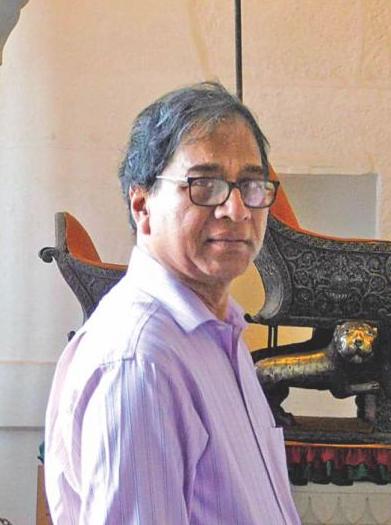The Tagore Program on Literature, Culture and Philosophy at UC Berkeley invites you for a talk by Bangladeshi academic, writer, and translator of Rabindranath Tagore's poetry, Dr. Fakrul Alam.
_________________
DATE: Friday, October 16, 2020
TIME: 9am Berkeley | 5pm London | 9pm Lahore | 9:30pm New Delhi | 10pm Dhaka | Calculate Your Local Time
This event will also be live streamed on the Institute's FB page: ISASatUCBerkeley as well as the Chowdhury Center's FB page: ChowdhuryCenter
_________________
Talk Abstract
If, as Robert Frost so famously said, poetry is what gets lost in translation, what gets lost in translating a song-lyric is almost all of its musical qualities as well as some of the poetry. Not only are the intrinsically melodic aspects of a song all but ungraspable for the translator, the intricately harmonious arrangements of the words are quite impossible to recapture in mere words. Perhaps that is why Rabindranath Tagore had opted to translate the song-lyrics that make up most of the Gitanjali as prose-poems; that must be also why after this selection of his lyrical works became amazingly successful worldwide, and he felt pressed to come up with more and more translations, he opted to translate later song-lyrics without paying much attention to the music that they are loaded with in the original Bengali. Successive translators of the Gitanjal song-lyrics too have found the musical aspects of the songs almost impossible to translate.
Nevertheless, and no doubt because of what W. B. Yeats had once described as the fascination of whats difficult, not a few of the over 2,000 song-lyrics Rabindranath had composed have attracted translators endlessly and challenged them to do what they could with them. I have been grappling with some of them for over a decade and by now have managed to translate almost 250 of them. What I would like to do in my presentation is to talk about: (i) why the song-lyrics deserve to be translated in a representative selection; (ii) why I have felt drawn to translating them despite their elusive nature; (iii) the lessons I have learnt along the way from my reading of the works of other translators; (iv) the lessons I have learnt from my own failures and repeated discoveries that I have translated the same song-lyric again and again, at times ending up with quite different versions of the same composition. What I would also like to convey through my presentation is my growing conviction that translating the song-lyrics made me cross over in an enthralling and seemingly endless journey to a terrain of unending differences that is proving to be immensely rewarding in understanding the nature and extent of Tagores achievement as a poet, a writer of songs and a composer.
Note: The title derives from a line (in my translation) from Odhoro madhuri..: one of Tagores songs about what he succeeded in doing in composing a song.
Speaker Bio
Dr. Fakrul Alam is UGC Professor, Department of English, University of Dhaka. He received the Bangla Academy Puroshkar (Literature Award) for Translation in 2013. His publications include Bharati Mukherjee (New York: Twayne, 1996), The Essential Tagore (Harvard UP, 2011; with Radha Chakravarty); Imperial Entanglements and Literature in English (writers ink: Dhaka, 2007); South Asian Writers in English (Detroit: Thomson Gale, 2006) and Jibanananda Das: Selected Poems (UPL, 1999); Other works include translations of Sheikh Mujibur Rahmans Unfinished Memoirs (Dhaka: UPL, New Delhi: Penguin Books, 2012) and Prison Diaries (Dhaka: Bangla Academy, 2016) and Ocean of Sorrow, a translation of the late nineteenth century Bengali epic narrative, Bishad Sindhu (Dhaka: Bangla Academy, 2017).His most recent publications are The English Writings of Rabindranath Tagore in The Cambridge Companion to Tagore, Ed. Sukanta Chaudhuri (Cambridge University Press, 2020); Once More into the Past (Dhaka: Daily Star Books, 2020) and Ballad of Our Hero Bangabandhu, a translation of Syed Shamsul Huqs Bangabondhur Bir Gatha. (Dhaka: Bangla Academy, 2020). Forthcoming works include the collection of essays Reading Literature Postcolonially and a collection of translations of Rabindranath Tagores songs. More about Dr. Alam on his wiki page HERE.
_________________
Launched in Fall 2020, and housed in the Institute for South Asia Studies, the Tagore Program on Literature, Culture and Philosophy at UC Berkeley, is the first of its kind in the US. Designed to showcase the life and legacy of Rabindranath Tagore, the program sponsors talks and workshops on Tagore, as well as semester-long visiting professorships in Tagore Studies at UC Berkeley. Read more about the program HERE.
_________________
Like us on FACEBOOK
Follow us on TWITTER
The event is FREE and OPEN to the public.

